Search Results
Showing results 1 to 20 of 85

Number Sense and Computation: Money Counts
Source Institutions
In this math lesson, learners count and compare amounts of money less than or equal to one dollar.
Rate It: Working With Zero and Negative Numbers
Source Institutions
In this activity, learners will rate the day, a book, or something else on a scale from -2 to 2. This activity works well for groups of all ages.
Measuring Rules
Source Institutions
In this math activity, learners create their own units of measurement by making noodle rulers. Learners practice estimating and measuring objects using the noodle rulers .
Quick Questions: Create a Survey
Source Institutions
In this activity, learners will conduct an open-ended survey, and then organize and analyze results. What languages does everyone speak? What’s the most common? the least common?
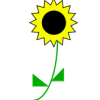
Patterns and Relationships: Peddling Petals
Source Institutions
In this math lesson, learners use the setting of a flower-making fundraiser to explore a variety of patterns. Learners examine the patterns in a flower design made of triangles surrounding a square.
Growing Plants: Track Their Growth
Source Institutions
In this activity, learners will be working with predictions with a time frame of one week, or longer. Start by planting seedlings.
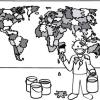
The Poor Cartographer: Graph Coloring
Source Institutions
In this activity, learners help a poor cartographer color in the countries on a map, making sure each country is colored a different color than any of its neighbors.
Breakfast Sweets
Source Institutions
In this math activity, learners guess which cereals contain the most sugar. Learners use the nutrition labels on the cereal boxes to find the cereal with the least amount of sugar.
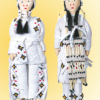
Plenty on the Plains
Source Institutions
In this activity, learners compare the ways of life of Plains Native Americans who hunted and moved frequently to follow the buffalo herds, and Native Americans who farmed and lived in more permanent
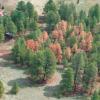
Bark Beetle Infestation Investigation: Estimation and Pheromones
Source Institutions
This activity investigates how bark beetles can threaten forests by having learners estimate the number of infected trees from a photo.
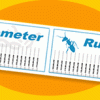
Measure Yourself in Nanometers
Source Institutions
In this activity, learners will be able to measure themselves in nanometers. A nanometer is a billionth of a meter, a unit of measurement used in nanotechnology.
Shape & Solid Exploration
Source Institutions
In this game, learners use clues to identify mystery shapes. Use everyday objects (like from the pantry) as the shapes.

Jump Like a Frog
Source Institutions
In this math activity, learners jump and measure how far they can jump on different surfaces using different jumping techniques.

The Thousand-Yard Model
Source Institutions
This is a classic exercise for visualizing the scale of the Solar System.
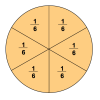
Number Sense and Computation: To Half or Half Not
Source Institutions
In this math lesson, learners use slices of bread and geoboards to explore several ways to divide a rectangle in half. Learners also identify equivalent fractions that represent one-half.
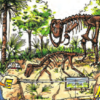
Dinosaur Interaction
Source Institutions
In this activity, learners explore why animals, specifically dinosaurs, live in families.
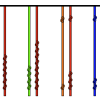
Quipus
Source Institutions
Learners create an Incan counting device called a quipu (pronounced kee-poo).
Caterpillar Measure
Source Institutions
In this activity, young learners use different-sized paper 'caterpillars' and various household items to predict and measure their height.
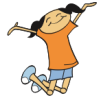
Work Up An Appetite
Source Institutions
In this activity, learners participate in fun movement activities while playing on a giant game board. Use this activity to get learners involved in physical activity.
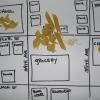
Create a Pasta Population Map
Source Institutions
Learners work as a group to create a map of their community. They use pasta to represent people, and glue the pasta on their maps to show areas of large population.
